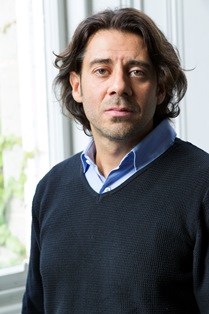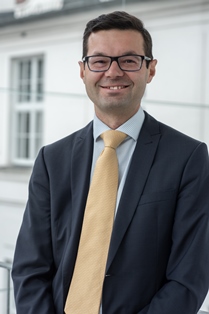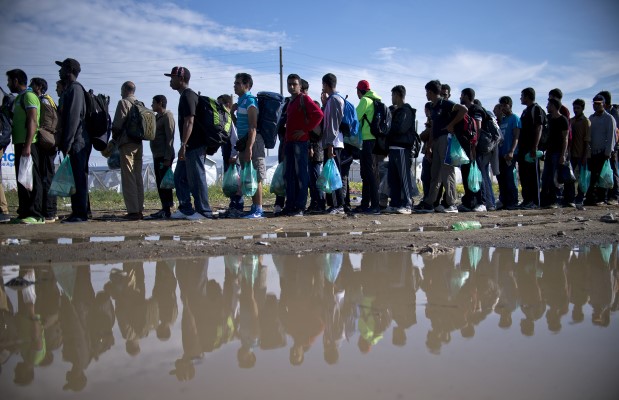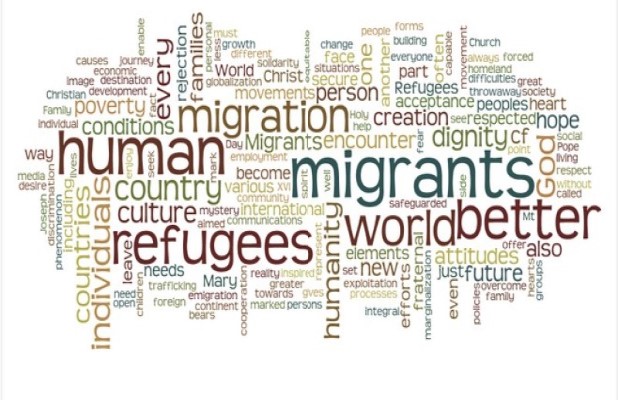Plenary Speakers
Speakers have been invited an have accepted the invitation. Speakers will be added, as they provide us with the neccesary information.

Since 2016, Peter Balleis has been Executive President of Jesuit Worldwide Learning; from 2007 until 2015 he was International Director of the Jesuit Refugee Service (JRS). Before that he was active in refugee work in different places. Thus he has over 30 years international and intercultural experience and work in all parts of the world, in particular in Africa, Latin-America, Asia and the Middle East, living for longer periods of several years in Zimbabwe, Kenya, Brazil and Italy. Regular visits to teams and projects of JRS and the Jesuit Mission Office and to works of partners led him to more than 50 countries. He holds a Master Degree (Licentiate) in Theology, Practical Ethics from the Instituto San Ignacio, Belo Horizonte in Brazil and an Honourable Doctorate in Law, from Gonzaga University, Spokane – USA.

Belachew Gebrewold is Professor of International Relations and the Head of Department and Studies of Social Work, Social Policy and Management at MCI, Innsbruck, Austria. His main research areas are African politics, conflicts and migration. He has been teaching on those topics at different universities in Europe and beyond. His publications include various peer reviewed articles, monographs and edited volumes such as Africa and Fortress Europe, Ashgate 2007; Anatomy of Violence: Understanding the Systems of Conflicts and Violence in Africa, Ashgate 2009; Global Security Triangle: African, Asian and European Interaction, Routledge 2010; Understanding Migrant Decisions: from Sub-Saharan Africa to the Mediterranean Region, Routledge, 2016; Human Trafficking and Exploitation: Lessons from Europe, Routledge, 2017. He has worked also as a member of the steering committee of the UN Global Compact for Regular, Safe and Orderly Migration.

Nidesh Lawtoo is assistant professor of English Literature at the KU Leuven. He received his PhD in Comparative Literature and Critical Theory from the University of Washington and held positions at the University of Lausanne, Johns Hopkins University, and the University of Bern, prior to coming to KU Leuven. His areas of specialization include modernism, critical theory, postcolonial literature, film studies and continental philosophy with special focus on theories of mimesis, imitation and simulation. He is the editor of Conrad’s Heart of Darkness and Contemporary Thought (Bloomsbury, 2012) and the author of The Phantom of the Ego: Modernism and the Mimetic Unconscious (Michigan State UP, 2013), Conrad’s Shadow: Catastrophe, Mimesis, Theory (MSU P, 2016; Adam Gillon Award), and (New) Fascism: Contagion, Community, Myth (MSU P, 2019). He is currently Assistant Professor of Philosophy, adjunct director of the research center MDRN, and Principal Investigator of a 5-year ERC project titled Homo Mimeticus that explores the role mimesis plays in modernist literature, sf films, and critical theory.

Luca Mavelli is a Reader in Politics and International Relations at the University of Kent, UK. His research focuses on biopolitics, neoliberalism, migration, secularism and religion in international politics. He is the author of Europe’s Encounter with Islam: The Secular and the Postsecular (Routledge 2012). He has co-edited, with Fabio Petito, The Postsecular in International Relations (2012 Special Issue of the Review of International Studies) and Towards a Postsecular International Politics: New Forms of Community, Identity, and Power (Palgrave, 2014), and, with Erin K. Wilson, The Refugee Crisis and Religion: Secularism, Security and Hospitality in Question (Rowman and Littlefield, 2017). His articles have appeared in the European Journal of International Relations, International Studies Quarterly, Review of International Studies, Security Dialogue, Millennium, International Politics, Critical Studies on Terrorism, Journal of Religion in Europe, and Teaching in Higher Education.

Duncan Morrow is Professor in Politics and Director of Community Engagement at Ulster University in Belfast. He has worked directly in the fields of conflict resolution, Northern Ireland politics and the relationship between religion and politics including a strong interest in prisons, the pathology of violence, policing and criminal justice. He has a long history in action research work, especially in the application of the thought and work of Rene Girard to the lived realities of violence, peace and conflict. His current research interests include Conflict and Religion, Ethnic Conflict, Northern Ireland Politics and the work of Rene Girard. Between 2002 and 2012, Duncan was Chief Executive of the NI Community Relations Council. In 1998 he was appointed as a Sentence Review Commissioner responsible for implementing the early release provisions of the Good Friday Agreement, and since 2002 he has been a Ni Parole Commissioner. Between 2012-15 he was chair of the Independent Advisory Group on Tackling Sectarianism which advised the Scottish Government. In 2015-16 he also chaired the Scottish Independent Advisory Group on Hate Crime, Prejudice and Community Cohesion. Since 2018 he has been actively engaged in political and community efforts to Northern Ireland society away from paramilitarism.

Mathias Moosbrugger is Assistant Professor in Patristics and Church History at the Department of Biblical Studies and Historical Theology of the University of Innsbruck. He studied history and theology at the University of Innsbruck, his theological dissertation about René Girard’s and Raymund Schwager’s dialogue about the relevance of the concept of sacrifice in Christianity was awarded with the prestigious Karl Rahner Prize for Theological Research (2013). He is a co-editor of Raymund Schwager’s Collected Works and served as a two term-member of the Advisory Board of COV&R. His academic interests include late medieval and early modern Church History, the history of local community building, recent history of theology, and the relationship between cultural theory and history.

Andreas Müller is Full Professor at the Department of European Law and Public International Law of the University of Innsbruck. He studied law and philosophy at the Universities of Innsbruck, Strasbourg and Yale Law School. He has been a regular Visiting Professor at the University of Alcalá, Spain, the Universidad Panamericana, Mexico, as well as Addis Ababa University, Ethiopia. His research focuses on international human rights law, international humanitarian law, international criminal law, international and European migration and asylum law, EU constitutional law and questions of legal philosophy and legal theory.

Wolfgang Palaver is Professor of Catholic Social Thought at the University of Innsbruck, Austria (where he was also Dean of the Faculty of Catholic Theology from 2013 until 2017). From 2007 to 2011, he was president of the “Colloquium on Violence and Religion” and in 2016, he became an honorary member of its board. He has published books and articles on violence and religion, Thomas Hobbes, Carl Schmitt, Simone Weil, and René Girard. His most recent English book is René Girard's Mimetic Theory (Michigan State University Press, 2013). He is the co-editor of Passions in Economy, Politics, and the Media (LIT, 2005), The European Wars of Religion (Routledge, 2016), The Palgrave Handbook of Mimetic Theory and Religion (Palgrave, 2017), and Mimetic Theory and World Religions (Michigan State University Press, 2018).

Karin Peter is a research assistant in the field of Religious Education and Catechetics at the Department of Practical Theology at the Catholic Theological Faculty of the University of Vienna. She finished her studies in theology and religious education at the University of Innsbruck and worked at the Kirchliche Pädagogische Hochschule - Edith Stein, Innsbruck-Stams. Her research interests include the interface of religious education, religious didactics and systematic theology as well as inclusion and religious education.

Michaela Quast-Neulinger undertook studies of Catholic Theology, Philosophy, Political Sciences, and Islamic Studies at various universities: Vienna, Salzburg, Innsbruck, Jerusalem, and Birmingham. She earned a diploma in Catholic Theology, a Master’s degree in Islamic Studies, and finished her doctorate in theology in Innsbruck in 2017 with the thesis Between Perfectionism and Dolorism. Towards a Political Theology of Vulnerability in Order to Relocate Religion in a Secular-Plural Age. She attended several interfaith and interreligious programs and has been coordinating the cooperation between the Innsbruck research center Religion – Violence – Communication – World Order and the University Platform for Research on Islam in Europe and Lebanon (PLURIEL) and the HEST-Cluster “Christian-Muslim Relations” of the Jesuit Institutions for Higher Education in Europe.

Gilles Reckinger is a social anthropologist and Academic Director of the Institut supérieur de l'économie, Luxembourg. His main research interests are: Migration, Precarization, European Border Regime, Globalized Labour Markets, and Mediterranean Studies.

Raja Sakrani is a jurist and a cultural science scholar. Since 2009, she is Research Coordinator at the Käte Hamburger Center for Advanced Study in the Humanities “Law as Culture” (Bonn) in the development and shaping of which she has been decisively involved from the project planning stage, via fund-raising to implementation.Currently, her research focuses on the impact of Islamic legal cultures on European legal history and the development of a deeper understanding of Islamic legal cultures that benefits from the analytical tools of cultural science legal studies.
Raja Sakrani’s academic interests are closely linked to her biographical background, combining the legal complexity of a postcolonial normative order (Tunisia) with the challenges of global law. This focus in her research led to a doctoral thesis about the genesis of a famous civil code in the Maghreb, which brought together legal traditions of Islam, Judaism and European Law. She has conducted research and teaching activities at the Universities of Paris (Sorbonne), Bonn and Madrid (NYU Abu Dhabi-Madrid).

Alexander Yendell is a sociologist and substitute professor at the Department of the Sociology of Religion and Church at Leipzig University. Before Alexander Yendell worked at Loughborough University, at the Cluster of Excellence “Religion and Politics” at the University of Münster as well as the University of Potsdam. He is currently working on a mixed methods project on urban violence and extremism in the City of Leipzig (together with Oliver Decker), on a project on social groups and religious identities in civil society (together with Gert Pickel and Antonius Liedhegener) as well as on a project on the perception of Christian, Jews, Muslims, Atheists in Switzerland (together with Stefan Huber). He is one of the authors of the Leipzig Study on Authoritarianism. His recent publications focus on explanations for the support of PEGIDA, Islamophobia and anti-Muslim sentiment in Europe, with special reference to Germany. Yendell’s main research interests are: sociology of religion, extremism, radicalization, Islamophobia, social inequalities, and quantitative methods in the social sciences.
For Information on the conference, the call for papers, accommodation, travel, registration, and our optional cultural program click here to jump to the top of the start page and then use the menu to the right.
Graciously co-sponsored by: 




Picture 1: "Migrants and refugees queue at a camp near Gevgelija" by Nikolay Doychinov, © AFP
Picture 2: Irish Catholic Bishops' Conference

